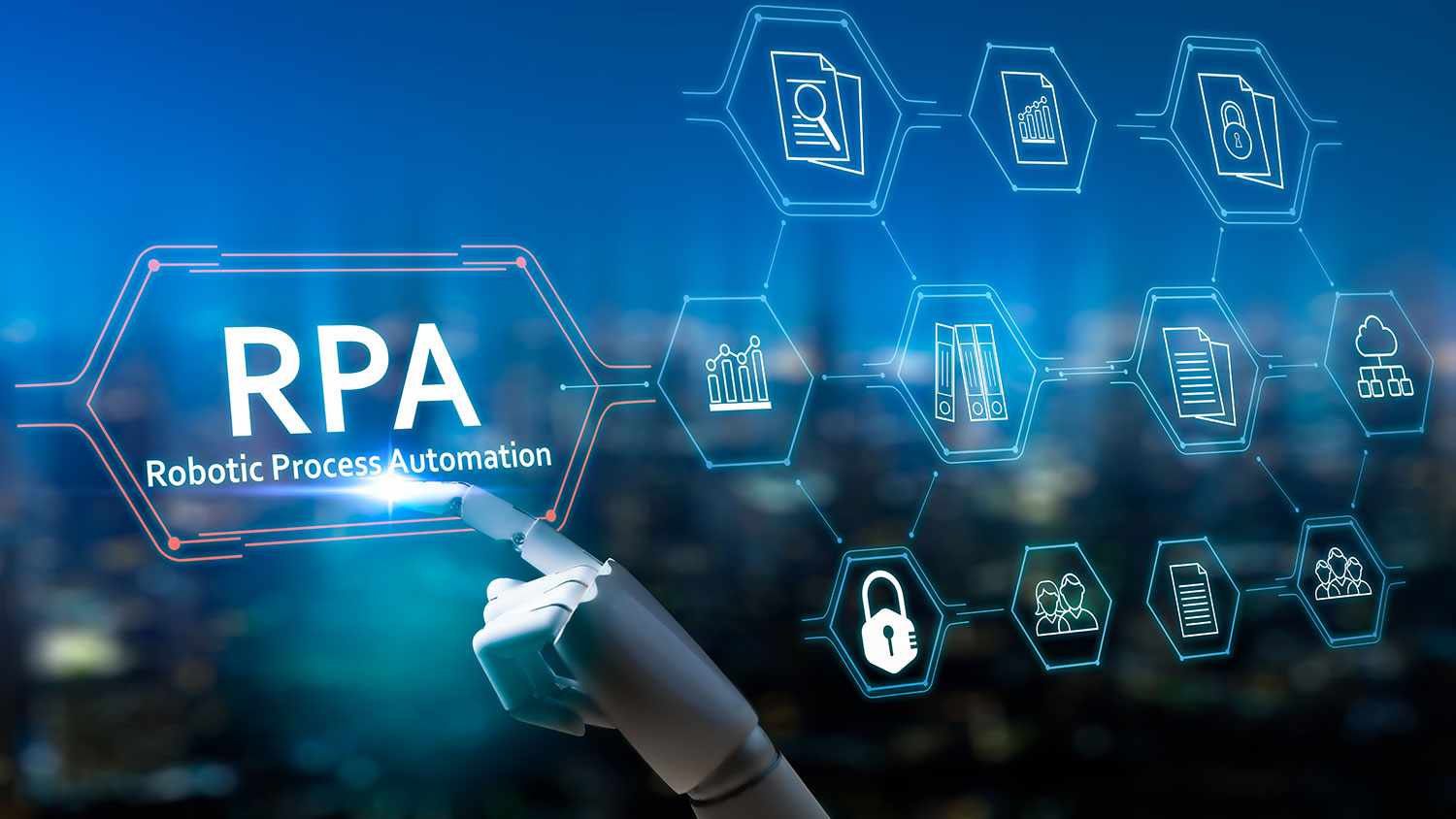Bots Are Not Coming, They’re Here! The Impact of Robotic Process Automation (RPA) on the Accounting Profession
Poole College Accounting Professor Marianne Bradford provides insight on the benefits and challenges of RPA technology in the accounting industry.

By Marianne Bradford, professor of accounting in the Poole College of Management
Since 2012 when the term robotics process automation (RPA) was first coined, this technology has slowly picked up steam. During COVID, RPA exploded as companies sought to maintain productivity in the face of a remote, and often reduced workforce. Today, RPA is no longer a bleeding-edge technology requiring proof of concept. Companies waiting for it to “take off” may miss out on opportunities for process efficiencies and cost savings.
RPA is the development and deployment of “bots” to automate labor-intensive, rule-based processes in a repeatable and reliable manner. Processes ripe for RPA should be standardized, easily defined and stable, and the inputs digital and easily readable such as data business systems, Excel files, text data, webpages, and the like. Examples of popular RPA solutions include UiPath (taught in the Poole College of Management), Automation Anywhere, and Blue Prism.
A Host of Benefits
Some of RPA’s benefits are faster processing, cost savings, reduced errors, improved productivity, better compliance and consistency, and enhanced customer satisfaction. Due to the simplicity of RPA development with idea to implementation only a few weeks, it can yield a quick ROI. RPA is also revolutionizing employees’ jobs by offloading mundane, manual tasks, which allows employees to focus on more strategic, higher-value work.
Since there are many rules-based processes and tasks in accounting, the use cases are seemingly endless. In public accounting, firms can develop “external facing,” bots to gain efficiencies in auditing their clients, such as those that automate internal controls testing, perform analytical procedures, extract data from client systems, and input data into tax return software. According to Bob Herman, managing director at RSM, “Given the fact that bots can “work” 24 hours a day and are largely a fixed cost, auditors are able to leverage bots to increase audit coverage without adding cost to their organization.”
Corporate accountants can give input on back-office use cases. These “internal facing” bots can be used to reconcile various accounts, move data from one system to another, process customer invoices, manage vendor bills, process payroll and more. Accountants are often involved in internal systems projects, and bots are being deployed to automate the scrubbing of master data based on predefined rules, removing duplicates and obsolete data. Bots can also perform mass uploading of this cleansed data from Excel spreadsheets into a new ERP system and test the software prior to “go live.”
The Challenges of Automation
However, RPA is not without its challenges with one of the main ones being resistance from users, who may fear losing their jobs or changing their roles in ways they do not like. Many people assume that ROI from automation comes from headcount reduction. But, to stand up a successful RPA program, change management practices should be in place to mitigate employee fear and concerns, provide training, and communicate how RPA will enable them to focus on more value-added, strategic work. According to Shayan Goodarz, senior manager within customer success at UiPath, “When done right, automation allows companies to upskill their talent, changing the way people think about work. This creates endless possibilities for companies to transform and allows employees to hold their futures in their hands and be change agents for that transformation.” The best way to deliver value is to see automation as the gift of time back to the business. What will the company do with that gift? Often the “gift” will allow companies to grow without expanding their workforce.
Another challenge in deploying bots is governance, especially in “citizen-developer” environments, where employees are provided the RPA technology and training to develop the bots themselves. In this decentralized scenario, a risk is that employees might not adhere to best practices for systems development resulting in deployment of bots that “break” or create security issues. An alternative to this citizen-led approach is establishing a Center of Excellence (COE) tasked with developing use cases for RPA with input from accountants, prioritizing them based on metrics such as ROI and ease of development, testing and deploying them, and training employees. “Guardrails” should be in place to restrict what system bots can interact with and what data they can access. Bots can login to systems and process data, so access controls, including unique usernames and passwords, can mitigate the risk that bots will go “rogue” on the network.
A challenge in public accounting is the development of bots for client engagements that cut billable hours. Firms are keen on RPA’s capabilities and possibilities until the question arises about how bots will affect revenues. For instance, if deploying bots on an audit decreases billable hours by 10%, the client will want the savings passed onto them. Accounting firms are therefore rethinking hours-based billing in favor of “value added billing,” or billing based on the value of the automation to the client. This has created a paradigm shift in how public accounting firms are thinking about and leveraging bots to add to their business models.
Another concern in public accounting is whether there will be pushback from the Public Company Accounting Oversight Board (PCAOB) on deploying bots to perform some of the audit tests — will they understand it and/or feel comfortable with it? The same concerns are being vocalized internally; if accounting departments deploy bots for processes that impact the financial statements, will their external auditors rely on the bots? External auditors will have to increase the scope of their audit procedures to get comfortable with the bot, which in turn will impact potential ROI.
Keys to Success
The accounting industry is still trying to figure out how automation fits in with their digital transformation journeys before getting to the next level of artificial intelligence. The trick is to start off small with low-hanging fruit — simple processes that can scale and have a clear ROI. Other keys to success include top-down sponsorship and alignment with corporate objectives and strategy. The accounting profession can be at the forefront of RPA — because bots are not coming, they are here.
- Categories:


